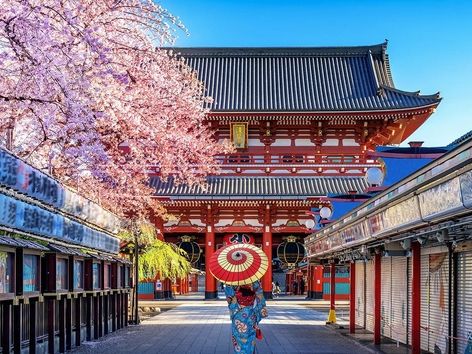Studying in Japan in 2025: A Detailed Guide for International Students
Table of contents
- Education system in Japan
- How to choose a university in Japan?
- Choosing a study programme in Japan
- Tuition fees in Japan
- Financial aid and scholarships in Japan
- University admission requirements in Japan
- Documents required for admission to a university in Japan
- How to get a student visa in Japan
- Exchange Programs in Japan

Studying in Japan is becoming increasingly attractive to international students. The country offers high quality education and is known for its innovation, cultural richness and hospitality. However, moving to another country to study can be a complex process that requires detailed planning and preparation. Find out more about how to study in Japan in 2025
Studying in Japan can be an incredible adventure! This country attracts students with its unique synergy of tradition and modernity, which creates a unique atmosphere for education. Japan is not only about books and lectures, but also an opportunity to explore the depths of their culture, which honours harmony, respect and creativity. According to statistics, the largest number of foreign students coming to Japan to pursue higher education come from China, India, Taiwan, Chile, Tunisia, and South Korea.
Choosing to study in Japan is a choice of quality education. The country's universities are world-leading, offering a wide range of disciplines and opportunities for personal and professional development. Here you can join cutting-edge research projects using the latest technologies and innovations.
Studying in Japan also fosters valuable skills such as discipline, collaboration and community interaction. These skills prove useful not only in the academic environment, but also in modern life and career development.
By choosing Japan to study, you will receive much more than just an education - you will immerse yourself in a unique culture that will forever remain in your heart and deepen your understanding of the world!
Obtaining a student visa is a complex process that involves preparing a large number of documents. Order the "Study Guide" from the Visit World team to find out what documents you need to prepare to apply for a Japanese student visa, as well as get useful tips for enrolling in foreign universities.
Education system in Japan
Japan is famous for its education system, which emphasises academic knowledge, discipline and work ethic. This system covers six levels, ranging from pre-school education to postgraduate studies.
Preschool education, while not compulsory, reaches over 70% of children and focuses on social skills and early literacy. Primary and junior high schools provide general education, while secondary school offers public, private, and vocational options.
In higher education, Japan stands out for its network of educational institutions. The country has 781 universities, 607 junior colleges and 1,085 specialised training colleges.
Postgraduate studies in Japan offer competitive master's and doctoral programmes with an emphasis on advanced research and critical thinking. The number of international students peaked at 312,214 in 2019, although it dropped to 242,444 in 2021 due to the pandemic. However, this number is now growing again, confirming Japan's attractiveness as a study destination.
How to choose a university in Japan?
When choosing a Japanese college, it is important to consider several key factors that will affect your educational trajectory and life in general:
1. The academic reputation of the institution.
One of the most important aspects, for example, the University of Tokyo and Kyoto University are known for their high quality of education and world rankings. Tohoku University and Osaka University also occupy high positions in world rankings, which makes them attractive to international students.
2. The study programs offered by the university.
You need to pay attention to what areas of knowledge you are interested in and what opportunities for specialization a particular educational institution offers.
3. Location of the university.
The choice of the city where the university is located can affect your student life and opportunities for development outside of academic classes.
In addition, don't forget about other important aspects such as the language of instruction, support for international students, scholarship programmes, and opportunities for research or internships. By considering all these factors, you will be able to make an informed choice of the university that best suits your needs and goals.
Choosing a study programme in Japan
When choosing a study programme in Japan, it is important to consider your personal interests and goals. Consider different fields of study such as engineering, medicine, data science, business, Japanese language, and environmental science, and then choose the one that interests you the most.
It is also important to consider the level of study. There is a variety of educational pathways in Japan, ranging from two- or three-year associate or diploma programmes that prepare students for immediate employment to four- to five-year bachelor's, master's, and doctoral programmes that provide a deeper knowledge and intellectual background.
Don't forget about opportunities for additional research or internships that can help you gain hands-on experience in your chosen field. By considering all of these factors and taking into account your personal interests and goals, you will be able to find the perfect study programme in Japan that meets your needs and contributes to your personal and professional development.
Tuition fees in Japan
In Japan, tuition fees for international students depend on the level of education and type of institution. For example, for bachelor's degree programmes, prices usually range from 820,000 to 900,000 yen per year, including the application fee. Master's programmes cost between ¥800,000 and ¥1,000,000 per year, and doctoral programmes cost between ¥680,000 and ¥1,100,000 per year.
National universities often charge between ¥820,000 and ¥900,000, public universities between ¥820,000 and ¥1,000,000, and private universities between ¥1,000,000 and ¥1,500,000.
Despite the high costs, the quality of education and the experience gained often justify the investment. Studying in Japan can be a rewarding experience, and the costs are outweighed by the benefits of a world-class education.
However, students should carefully research and plan for all related costs before applying to avoid unexpected expenses and ensure a stable financial plan for the duration of their studies.
Financial aid and scholarships in Japan
There are a variety of financial aid and scholarship options for international students in Japan. Among them are scholarships from the Japanese government (MEXT), which cover tuition, living and travel expenses. Universities also offer their own scholarships, and private foundations provide assistance based on various criteria.
Specific types of scholarships include the Honjo International Scholarship Fund, which covers tuition, accommodation and travel costs, and the JASSO Scholarship for Japanese language studies.
It is possible to get fully funded scholarships or scholarships with full tuition fees, but the competition is high. To increase your chances, it is worth starting your research early, meeting the selection criteria, maintaining a high level of academic performance, writing a convincing application, obtaining strong letters of recommendation, and meeting the deadlines. Diligent preparation greatly increases the likelihood of obtaining these prestigious study opportunities in Japan.
University admission requirements in Japan
Admission to Japanese universities involves meeting certain requirements, such as academic criteria, language proficiency, etc. Most universities require at least 12 years of formal education, which is equivalent to a high school diploma. For courses taught in Japanese, a language proficiency level of JLPT with a minimum of JLPT N2 is required.
For courses taught in English, language proficiency is also required, as evidenced by TOEFL iBT (minimum score of 80), IELTS (minimum score of 6.5) or DET (minimum score of 105). Additional requirements may include an application form, an entrance exam, a motivation letter and, for PhD programmes, a research proposal.
Application deadlines vary, but are usually in the autumn and spring semesters. Strategic planning, thorough research, and meeting the admission criteria significantly increase the chances of successful admission to Japanese universities.
Documents required for admission to a university in Japan
To apply to Japanese universities, international students need to have a complete set of documents:
- A completed application form containing personal information, academic transcripts, and letters of recommendation.
- An application fee, which is usually around 30,000 - 50,000 yen.
- Official transcripts from previous educational institutions, translated into Japanese or English if they are not in these languages.
- Letters of recommendation are also important to confirm the student's academic abilities and potential.
- Language proficiency test results such as JLPT, TOEFL, IELTS, or Duolingo English test are required to determine the level of language proficiency.
Some programs may also require entrance exam results such as EJU. Graduate students are required to submit a letter of motivation or research proposal that explains their interests and goals. Finally, additional documents are required, such as a copy of their passport, financial aid documents, or a health certificate.
How to get a student visa in Japan
A Japanese student visa opens the door to higher education opportunities in Japan. It usually costs around, ¥3000-6000 and can be valid for up to four years, depending on your study plan. This document confirms your commitment to study in a country rich in culture and academic opportunities.
The Ministry of Foreign Affairs of Japan sets standard requirements for obtaining a student visa:
1. Passport;
2. Photographs;
3. Completed visa application form;
4. Certificate of eligibility for study.
These requirements may vary depending on the country of origin or other individual circumstances. The visa application process is usually quite simple and straightforward. The main steps include obtaining a certificate of eligibility, submitting the required documents, a possible interview, paying the visa fee and waiting for the visa to be processed.
Once you have successfully obtained your visa, all you have to do is fly to Japan to start your studies.
Exchange Programs in Japan
In addition to higher education, exchange programs are very popular in Japan. For example, one of the courses is a 12-day study abroad program that allows students to learn about the legal system, history, and culture of Japan.
In Tokyo, students learned about restorative justice, public safety, and disaster preparedness at the Honjo Life Safety Learning Center. The city is preparing for a major earthquake based on expert predictions that Tokyo could experience within the next 30 years. The group also visited the National Diet, the Prisoners' Rights Center, and the Japan Legal Support Center, and attended a lecture on human rights protection from Amnesty International.
In Kyoto and Osaka, students explored environmental sustainability at the Maishima Environmental Partnership Facility and discussed crime prevention and rehabilitation at Kyoto Sangyo University.
During their stay, participants visited cultural attractions, including Asakusa, Senso-ji Temple, Tokyo National Museum, Tokyo Tower, the Golden Pavilion, Arashiyama Bamboo Forest, and Fushimi Inari Shrine.
To conclude their trip, the students traveled to Hiroshima and visited Fukuyama City University (FCU).
Studying in Japan is an opportunity to explore a new culture, meet interesting people, and expand your academic opportunities.
Ihor Usyk - head of Visit World's legal department
Products from Visit World for a comfortable trip:
Checklist for obtaining a visa and necessary documents for Japan;
Legal advice on immigration to Japan;
Travel insurance for foreigners in Japan;
Medical insurance all over the world.
Frequantly
asked questions
Is Japan a good place to study abroad?
Is studying in Japan expensive?
What are the disadvantages of studying in Japan?
Recommended articles
2 min
Education
Best Fully Funded Scholarships for International Students 2025
Are you planning to study abroad? That's great! There are a number of fully funded scholarships available for international students. Find out more about which well-known universities offer scholarships, what costs they cover, and for which majors fully funded scholarships are available
05 Jan. 2025
More details2 min
Residence permit
Cost of living in Japan: expenses for housing rent, food, transport and monthly budget
Japan attracts expats with its rich cultural traditions, delicious cuisine, technological advancements, and stunning natural beauty. However, before planning a move to Japan, it is important to determine whether the cost of living in the country is affordable compared to the country you currently reside in. Find out how much it will cost to live in Japan in 2024/2025
26 Nov. 2024
More details2 min
Education
The number of international students in Malaysia is steadily increasing as the country positions itself as an attractive place to study abroad. Find out why Malaysia is a popular study destination and how to get a student visa to Malaysia
17 Jan. 2025
More details2 min
Education
Studying abroad: top mistakes to avoid when applying to study at foreign universities
Studying abroad is a great opportunity to gain new experience, but it is also a very important step in life that requires careful preparation. Find out what are the most common mistakes to avoid when applying to study at foreign universities
30 Jan. 2025
More detailsAll materials and articles are owned by VisitWorld.Today and are protected by international intellectual property regulations. When using materials, approval from VisitWorld.Today is required.
